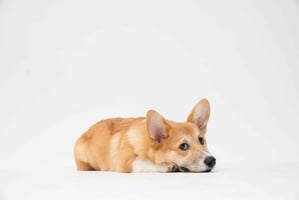Are you in need of some tips on how to stop a puppy from chewing? If your puppy is making a mess of...
Best Way to Stop Your Puppy From Chewing Everything
If you have a puppy, you know that they love to chew. Puppies chew to explore their environment, to relieve discomfort, and to satisfy their natural instincts. Fortunately, there are several methods to teach your puppy not to chew on everything. This article will provide you with tips and tricks on the best way to stop your puppy from chewing everything.
Understand Why Puppies Chew
The first step to stopping your puppy from chewing is to understand why they are doing it. Puppies are naturally curious and explore their environment by putting things in their mouths. Chewing is also a way for your puppy to relieve discomfort due to teething. Puppies also have an instinctive need to chew and gnaw, so it is important to provide them with appropriate chew toys.
It is important to remember that puppies are learning, and chewing is a natural part of the learning process.
Provide Appropriate Chew Toys
Providing your puppy with appropriate chew toys is an important part of teaching them not to chew on everything. When choosing chew toys for your puppy, it is important to choose toys that are safe and durable. You should also choose toys that are appropriate for your puppy’s size and chewing style.
Here are some examples of appropriate chew toys for puppies:
- Kong toys
- Nylabones
- Rope toys
- Soft toys
- Rubber balls
It is also important to rotate your puppy’s toys so that they don’t get bored with them. Offering your puppy a variety of toys will keep them interested and less likely to chew on things that they shouldn’t.
Redirect Chewing Behavior
When your puppy starts to chew on something they shouldn’t, it is important to redirect their behavior. It is important to catch your puppy in the act and redirect them to an appropriate chew toy. If you catch them after the fact, they won’t understand why they are being scolded and it will not be effective.
When redirecting your puppy’s behavior, it is important to be patient and consistent. You can also praise your puppy when they chew on the appropriate chew toy to reinforce the desired behavior.
Provide Supervision
It is important to provide your puppy with supervision when they are unsupervised. This will help you to catch them in the act and redirect their behavior. You should also keep any items that you don’t want your puppy to chew out of their reach.
You should also puppy-proof your home. This means removing any items that could be hazardous for your puppy. This includes things like electrical cords, house plants, and any small items that could be a choking hazard.
Discourage Chewing With Positive Reinforcement
Positive reinforcement is an effective way to discourage your puppy from chewing on things they shouldn’t. You can use treats and praise to reward your puppy when they chew on the appropriate chew toys.
You can also use negative reinforcement to discourage your puppy from chewing on things they shouldn’t. When your puppy starts to chew on something they shouldn’t, you can make a loud noise to startle them. You can also use a spray bottle filled with water to spray your puppy when they start to chew on something they shouldn’t.
Exercise and Mental Stimulation
Exercise and mental stimulation are also important for puppies. Giving your puppy plenty of exercise and mental stimulation will help to keep them from getting bored and chewing on things they shouldn’t.
You can provide your puppy with exercise by taking them for regular walks and playing interactive games with them. You can also provide mental stimulation by teaching them basic commands and playing puzzle games.
Conclusion
Chewing is a natural part of the learning process for puppies. Fortunately, there are several methods to teach your puppy not to chew on everything. It is important to understand why puppies chew, provide appropriate chew toys, redirect chewing behavior, provide supervision, discourage chewing with positive reinforcement, and provide exercise and mental stimulation.
By following these tips, you can help to prevent your puppy from chewing on things they shouldn’t and teach them to chew on appropriate chew toys instead.



